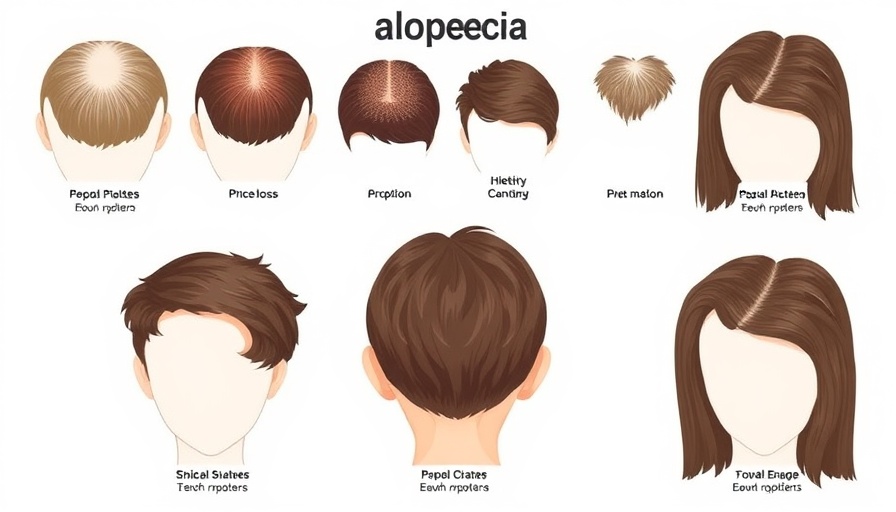
Understanding Alopecia: A Broad Spectrum of Conditions
Hair loss can be a life-altering experience, impacting not only appearance but emotional well-being as well. Alopecia is the medical term encompassing a variety of hair loss conditions that can affect individuals both physically and psychologically. With millions of people facing this challenge, it is essential to explore the different types of alopecia, their causes, and the emerging treatments that aim to alleviate this distressing condition.
Types of Alopecia: What You Need to Know
There are several forms of alopecia, each with its unique characteristics. The three most common types are:
- Alopecia Areata: An autoimmune disorder where the body attacks its hair follicles, leading to round or oval patches of hair loss. Some may experience a progression to alopecia totalis (complete scalp hair loss) or alopecia universalis (complete body hair loss).
- Androgenetic Alopecia: Also known as male or female pattern baldness, this genetic condition results from hormonal changes affecting hair follicles, leading to receding hairlines in men and diffuse thinning in women.
- Traction Alopecia: A preventable condition caused by excessive tension on hair from styles like tight ponytails and braids. If caught early, changing hairstyling techniques can reverse damage.
The Emotional Toll of Alopecia
The journey with alopecia goes beyond physical symptoms; it deeply affects individuals' emotional health. People often report feelings of low self-esteem, social anxiety, and depression after experiencing hair loss. The visible aspects of alopecia can hinder personal and professional interactions, highlighting the need for effective treatment solutions.
Current Research and Emerging Treatments
In light of the emotional and physical burden of alopecia, research institutions are stepping up their efforts to find effective treatments. For instance, recent clinical trials are exploring the efficacy of JAK inhibitors, which aim to block specific pathways that drive the autoimmune response in alopecia areata. These promising developments provide hope for individuals seeking solutions to their hair loss.
A Community Response: Support Groups and Resources
Communities play a vital role in supporting those affected by alopecia. Numerous support groups exist, offering emotional support and practical advice for those navigating hair loss. Local initiatives, such as community workshops and informational sessions about alopecia, help destigmatize the condition and foster solidarity. Building connections among those experiencing similar challenges can be a powerful part of the healing journey.
Finding Hope in the Journey
Living with alopecia can feel isolating, but the ongoing research and support networks available today emphasize the importance of community and awareness. With advancements in medical research and a growing understanding of the condition, individuals can regain confidence and find hope amidst their struggles with hair loss.
Alopecia is not just a medical condition; it is part of many people's lives and their personal stories. Understanding its complexity and supporting one another can foster resilience and positivity in those affected.
For those affected by hair loss, seeking treatment options, learning about supportive communities, and engaging with current research can lead to a path of empowerment and renewed hope.
 Add Row
Add Row  Add
Add 





Write A Comment